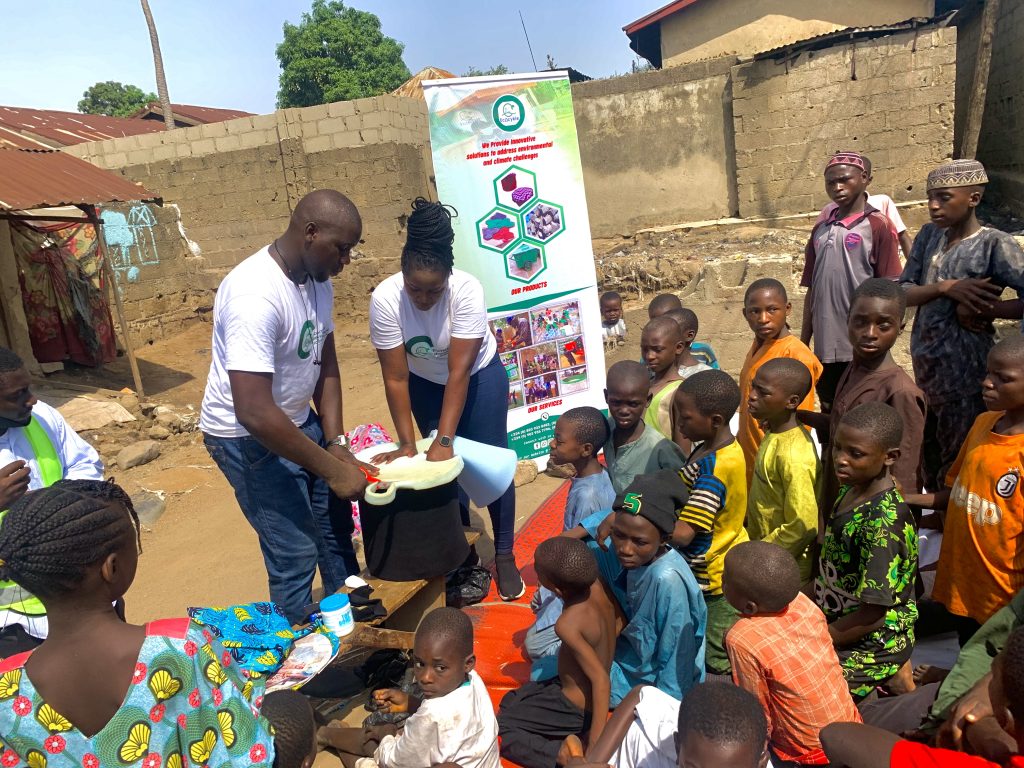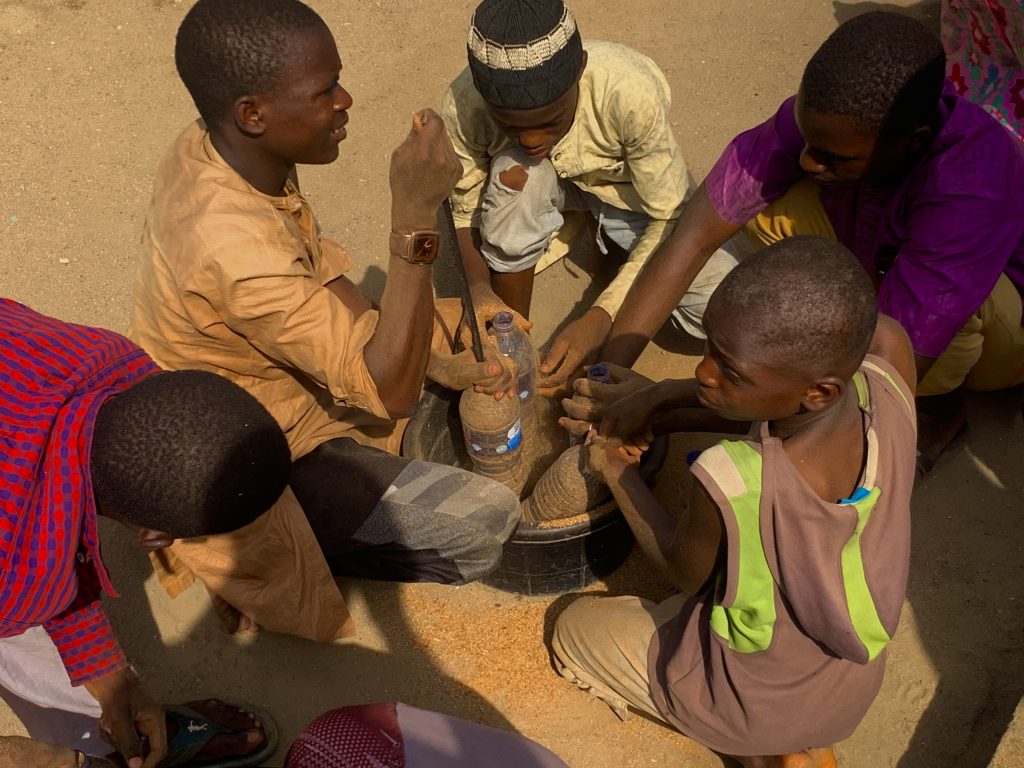ECOCYKLE TRAINS ALMAJIRI CHILDREN ON WASTE RECYCLING IN ANGWAN MANJA COMMUNITY, NASARAWA STATE

Every day, the world is confronted with the devastating impact of plastic pollution, which is primarily the result of poor waste management. Nigeria, being the most populous black nation in Africa, with a population of over 205 million people is faced with significant waste management challenges which consequently hampers the environment. Despite the fact that Nigeria generates about 2.5 million tonnes of waste, only about 12% of plastic waste is recycled, threatening aquatic species, destroying natural habitats, and deteriorating human health.
As the word commemorates the 2023 Global Recycling Day, Ecocykle Development Foundation launched the OYA Recycle Project, an initiative that aims to empower out of school children living in slums with waste recycling skills needed to foster behavioral change and inspire creativity among young people to address waste management challenges.

The event, held in Angwan Manja, a slum community in Nasarawa State, gathered about thirty five (35) Almajiri children, majority of whom do not have access to basic education, and sensitized and trained them on waste recycling.
Lauritta Boniface, program manager at Ecocykle Development Foundation, educated participants on the value and potential of waste. She also educated participants on their role in protecting the environment from the devastating effects of waste by leveraging their creativity to foster local recycling solutions.
During the training, Aliyu Sadiq, Executive Director of the Ecocykle Development Foundation, led a practical session. He taught participants about plastic waste recycling by building a chair out of plastic waste, sawdust, and other discarded waste materials. He also discussed some strategies for creating other products from waste, such as pavement bricks and buildings.
Despite being marginalized and neglected in society, the Almajiri have great potential for creativity, which, if developed, could be useful in addressing environmental pollution challenges caused by waste in slum areas.

During the conclusion of the training, Mr. Mustapha, custodian of the Almajiri’s, expressed his heartfelt gratitude for the highly impactful training. He emphasized that their community, Angwan Manja, was facing a serious waste pollution problem, but expressed hope that they would use the knowledge gained to provide better solutions, allowing them to benefit from waste values as well.
By
Aliyu Umar Sadiq
aliyusadiq34@gmail.com





